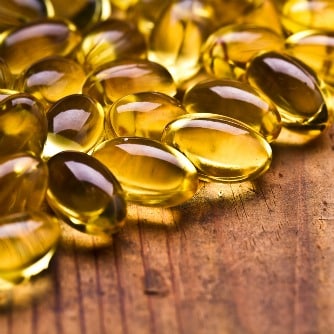Researchers at Louisiana State University have determined that fish oil boosts damaged brain cells as well as damaged retinal cells. The study was spearheaded by Nicolas Bazan, the Director of LSU’s Health New Orleans School of Medicine’s Neuroscience Center of Excellence. The research was performed in a model of human retinal pigment epithelial cells and ischemic stroke.
About NPD1
NPD1 is an acronym that stands for neuroprotectin D1. This is a lipid messenger made from omega-3 fatty acid docosahexaenoic acid or DHA. It is made in an on-demand fashion when cell survival is threatened. NPD1 was identified and named back in 2004 by Dr. Bazan. Oxidative stress is created by the steady production of harmful free radicals. It sets the stage for cell death. Such death is hastened by catastrophic happenings like blinding-eye diseases, neurodegenerative diseases, and ischemic stroke.
The Findings
This study is considered a breakthrough as it provides the first evidence that NDP1, a signaling molecule, prompts the creation of a protective protein against harmful free radicals as well as brain cell and retinal cell injury. Dr. Bazan’s research team found that the systematic administering of NPD1 a single hour following two hours of experimental stroke boosted the creation and accessibility of ring finger protein 146 called “Iduna”. Iduna allows for rapid DNA repair and protection against programmed cell death that occurs in stroke known as “parthanatos”. This occurs as Iduna reduces the generation of PARP, a harmful protein.
The research team’s findings also show that NDP1 boosted the generation of Iduna and protection in two distinct types of RPE cells, primary RPE and ARPE-19, that were enduring uncompensated oxidative stress. It was determined the effect of NDP1 on Iduna activity peaked about six hours following the beginning of oxidative stress. A dose-dependent curve displayed heightened Iduna activity commencing s 25 nM NPD1 in each type of RPE cells. The results indicate NDP1 causes Iduna activity in a selective manner in instances when uncompensated oxidative stress stimulates the creation of NPD1 that consequently triggers Iduna.
The findings are important as they show that NPD1 created in an on-demand manner, modulates the amount of Iduna protein necessary for cell survival. Iduna is important for the reprogramming of cell existence and proper functionality. A continued study of this protein might soon lead to key developments in terms of therapeutic interventions for ischemic stroke and retinal degeneration.




